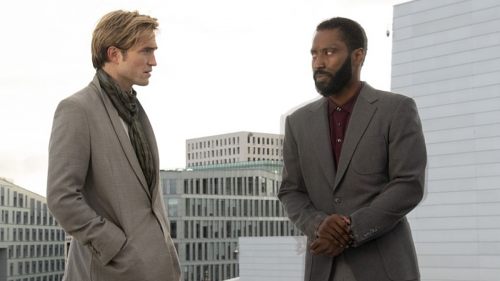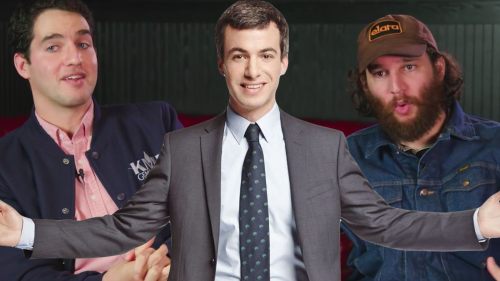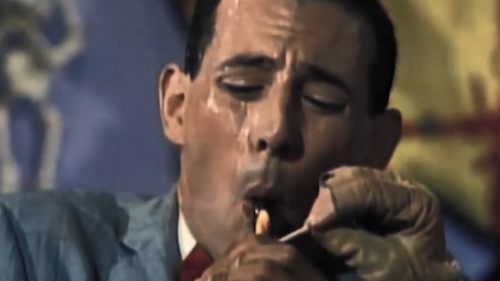For a GOOD TIME, Call Robert Pattinson And the Safdie Brothers
Even when Robert Pattinson’s name is superimposed over his face during Good Time’s opening credits, it’s hard to process that it’s him you’re looking at. More than just the scruffy beard and mustache transform his features from the familiar; there’s a fire and ferocity in his eyes, a hungry look one associates with an actor clawing his way up, not one breaking from an established star persona. In a sense, Good Time is a reintroduction to Pattinson post-The Twilight Saga; he has played against that type since, but never as vibrantly as he does in Josh and Benny Safdie’s rough-and-ready NYC-overnight thriller.
There’s a touch of young Colin Farrell to Pattinson’s visage and a flawless Queens accent in his voice as he disappears into the role of Constantine “Connie” Nikas, a screwup whose redeeming and motivating quality is his love for his mentally challenged brother Nick. In another remarkable performance, Nick is played by Benny Safdie himself, giving a completely convincing and unsentimental reading of a “slow” young man who, based on the opening scene, has some serious family-induced trauma in his past. Just as we’re starting to learn about it, Connie swoops in to pull Nick out of a psychiatric session; he has other plans for his sibling, which seem fated from the beginning to go wrong, albeit in ways that are totally unpredictable.
Connie brings Nick along on a crime that they initially seem to successfully pull off, only for things to go awry in ways that lead Nick to be arrested and taken to Riker’s Island. Connie becomes determined to bail him out, and his attempts to pull together the money are just the start of a long, long night of desperate actions, dubious decisions, frustrations and reversals of fortune that click together with relentless plausibility in Josh Safdie and Ronald Bronstein’s script. You never know where the story is going to go next, in part because Connie doesn’t either. He’s not just a dumb thug stumbling his way into trouble, though; Connie is smart enough to consistently come up with spontaneous solutions to his predicaments, he’s just too impulsive to think ahead to the possible consequences or complications.
The Safdies and cinematographer Sean Price Williams immerse you in the pressurized scenario with a mix of tight close-ups, handheld camerawork and overhead shots suggesting the viewpoint of a scientist watching a rat traverse a maze. Good Time was lensed in 35mm widescreen, and the depth and density of the darkly beautiful images lends an extra layer of authenticity to Connie’s odyssey. The intoxicating, propulsive electronic score by Oneothrix Point Never (a.k.a. Daniel Lopatin) adds a big shot of aural adrenaline.
Although the film is breathlessly paced overall, there are many moments where Good Time settles down for scenes that allow its briefly seen supporting players to shine. They range from familiar faces like Jennifer Jason Leigh, as Connie’s easily frustrated girlfriend Corey, and Captain Phillips’ Barkhad Abdi as a security guard who interrupts one of Connie’s last-ditch schemes, to newcomers including Buddy Duress as Ray, a young punk who becomes drawn into the scenario in ways it would be totally unfair to reveal, and Taliah Webster as Crystal, a teenager who provides a vital piece of Connie’s on-the-fly plan. She also figures into one of several moments where Good Time takes notice of the class and race inequities that bubble under the city’s surface, though the movie never comes close to being a polemic. It is first and foremost a remarkable demonstration of pulp-narrative skill that will likely launch the Safdies toward bigger things (though you get the feeling they’ll only take on any higher-profile projects on their own terms), and a coming-out party for a Pattinson we haven’t seen before.



